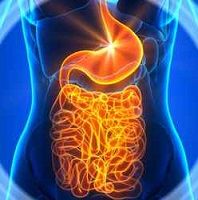Article
Gut Microbiota Differs in HCV Patients, Healthy Individuals
Author(s):
There have been more than 12,900 studies on the involvement of dysbiosis in the gensisinfectious diseases in the last 15 years.

A better understanding on the gut microbiota for patients with hepatitis C virus (HCV) could help explain the evolution of liver disease.
A team, led by Biagio Pinchera, Department of Clinical Medicine and Surgery, University of Naples Federico II, evaluated current knowledge on the gut microbiota in patients with HCV and identified how DAA treatment impacted the progression of liver disease.
The Role of the Gut Microbiota
It is well-established that the gut microbiota plays a key role in HCV-related liver disease because the infection can alter the gut microbiota where intestinal dysbiosis induces an underlying inflammatory state.
This could result in further liver disease progression.
However, since the development of direct-acting antiviral (DAA) treatments have changed HCV care drastically, the chances of recovery has greatly increased in recent years.
“Beyond the elimination of the virus, DAA therapy can affect the gut microbiota of the HCV patient,” the authors wrote. “The study of the gut microbiota in the patient with HCV-related liver disease could be the first step in understanding the etiopathogenesis of hepatopathy thereby opening the way to new therapeutic opportunities.”
The gut microbiota remains a mystery in the terms of how it impacts certain diseases.
The Studies
There have been more than 12,900 studies on the involvement of dysbiosis in the gensisinfectious diseases in the last 15 years.
One thing clear in the literature is the composition of the gut microbiota is significantly affected by liver disease, but there are differences in the composition of the bacterial flora in different diseases, including non-alcoholic fatty liver disease (NAFLD), alcoholic liver disease (ALD), and viral hepatitis compared to healthy individuals.
However, the changes in the intestinal microflora during HCV differ from NAFLD and ALD, where differences emerge between the flora of patients in a stage of chronic liver disease without cirrhosis and the flora of patients in a state of liver cirrhosis related to HCV.
Overall, there have been very few studies that have evaluated the changes in the microbiota during HCV infection.
However, in the studies comparing healthy controls with patients with HCV, Ruminococcus, Bifidobacterium and some clostridia were more abundant in the healthy control group, while Lactobacilli and Bifidobacteria were found to be effective immunomodulators that contribute to the inhibition of inflammation, the suppression of oxidative stress, and the prevention of hepatic lipid deposition.
Investigators also found that while a greater abundance of Firmicutes, Proteobacteria and Actinobacteria was observed in healthy participants, members of the phylum Bacteroidetes were found to be more abundant in patients with HCV.
There was a higher prevalence of Ruminoccus and Clostridium genera in healthy individuals and a higher abundance of Prevotella and Faecalibacterium in patients with HCV-related chronic liver disease.
The prevalence of phylum Bacteroidetes was particularly greater in patients with HCV because of the greater abundance of the genus Prevotella, which can be attributed to an altered production of IgA and a reduced production of IgA, which would lead to intestinal dysbiosis. This reduced production is because of the ability of the C virus to infect the gastric B lymphocytes, which are responsible for the production of IgA and induces a reduced production and consequent intestinal dysbiosis.
Conclusions
Overall, the literature shows that gut microbiota is affected by HCV.
“The imbalance of the gut microbiota seems to be responsible for the main complications related to cirrhosis such as hepatic encephalopathy, spontaneous bacterial peritonitis, the progression of liver cirrhosis and hepatocarcinoma,” the authors wrote. “The patients with liver cirrhosis are in a state of chronic inflammation triggered and sustained by the alteration of the gut microbiota despite eradication of the virus.”
However, there remains a need for future studies.
“Our review highlights how the gut microbiota plays an increasingly decisive role in relation to liver disease and in particular in relation to HCV-related liver disease. The gut microbiota most likely plays a fundamental role in the etiopathogenesis of liver disease and especially in its evolution,” the authors wrote. “The gut microbiota most likely plays a fundamental role in the etiopathogenesis of liver disease and especially in its evolution. Although the revolutionary impact of DAA therapy on HCV is already known, these therapies could have an even more significant indirect impact on the microbiota and the resulting liver conditions.”
The study, “Microbiota and hepatitis C virus in the era of direct-acting antiviral agents,” was published online in Microbial Pathogenesis.




